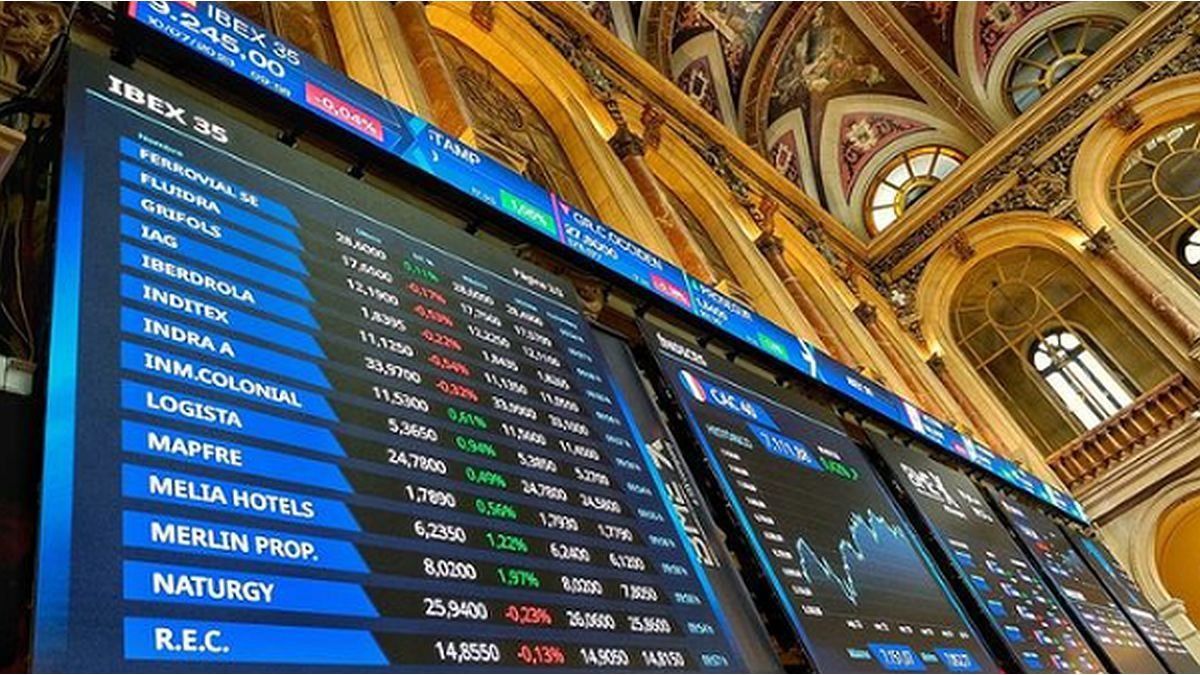European stock markets are trading lower this Friday, with investors focused on November inflation data from the euro zone, a crucial indicator ahead of the European Central Bank’s final monetary policy meeting, scheduled for December 12.
Germany’s DAX index lost 0.1%, France’s CAC 40 index fell 0.14% and the United Kingdom’s FTSE 100 fell 0.1%.
On the other hand, France’s risk premium reached the same level as Greece’s for the first time, reflecting investors’ growing concerns about current instability. The market is awaiting Eurozone inflation data, which will be published today.
Inflation data
These figures will provide key information on economic developments in the region and could influence the decisions of the ECB at its December meeting. With inflation being a driving factor in interest rate policies, this data is expected to guide investor sentiment in the short term.
The insurer British Aviva has contacted shareholders of its smaller competitor, Direct Line, which could indicate its intention to carry out a hostile takeover.
According to reports The Financial Timesthis approach occurred following Direct Line’s rejection of an initial offer from Aviva, which consisted of a combination of cash and shares. The proposal was considered by the smaller company as “excessively opportunistic” and “devaluative.”
Eurozone.jpg
The announcement of a ceasefire between Israel and Hezbollah impacted crude oil prices, although uncertainty persists over the duration of the truce.
Photo: ECB
Aviva’s offer, presented on November 19, is part of a growing trend of consolidation in the insurance sector. Direct Line’s rejection opens the possibility of a showdown between the two companies, leaving shareholders in the middle of a high-stakes negotiation.
On the other hand, oil prices fell on Friday, pointing to a possible weekly loss, due to expectations of an easing of tensions in the Middle East. Investors now focus their attention on the upcoming OPEC+ meeting.
Brent oil registered a fall of 0.5%, reaching US$72.45 per barrel, while US crude oil (WTI) fell 0.1%, reaching US$68.71 per barrel.
The announcement of a ceasefire between Israel and Hezbollah impacted crude oil prices, although uncertainty persists about the duration of the truce.
France’s 10-year bond yield was trading around 2.946% on Friday, just below Greece’s benchmark borrowing costs of 2.956%, and had hit its highest levels above from Germany since 2012 at the beginning of the week.
Germany’s 10-year bond yield was steady at 2.12% on Friday morning, after falling 27 basis points this month as debt rallied for four straight weeks. Traders have already priced in a 25 basis point rate cut by the European Central Bank, leaving them at 3% in December, although “aggressive” comments from board member Isabel Schnabel this week tempered expectations of a rate cut. 50 basis points.
U.S. 10-year Treasury yields, which were at 4.24% on Friday, fell 17 basis points this week after Trump nominated Wall Street veteran and hedge fund manager Scott Bessent for Treasury Secretary, easing fears about US over-borrowing.
Although Trump’s tariffs could increase inflation in the US, Federal Reserve officials have been cautious about rate cuts, although markets still expect them to reduce the funds rate, currently in a range of 4 .5%-4.75%, by a quarter point next month.
Brent crude fell 0.4% on Friday to $72.13 a barrel, heading for a weekly drop of more than 3% as the ceasefire deal between Israel and Hezbollah in Lebanon eased supply fears, while that gold fell 0.5% on the day to $2,655 per ounce.
Source: Ambito
I am an author and journalist who has worked in the entertainment industry for over a decade. I currently work as a news editor at a major news website, and my focus is on covering the latest trends in entertainment. I also write occasional pieces for other outlets, and have authored two books about the entertainment industry.




